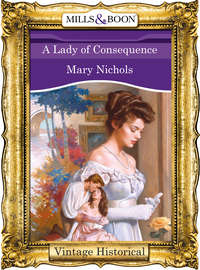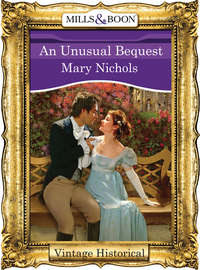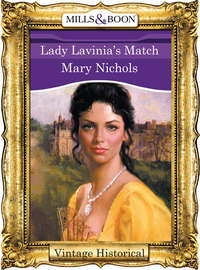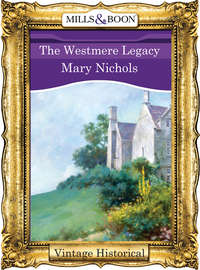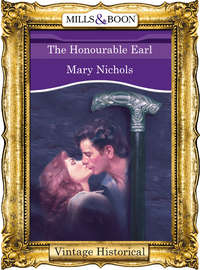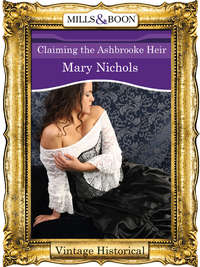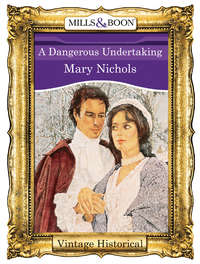
Полная версия
Scandal At Greystone Manor

Somehow the day was got through, with Isabel white-faced and their aunt flitting about trying to be helpful.
Jane was glad when all the preparations were complete and she could go to bed. She undressed and crept between the sheets, but sleep eluded her. She was committed to persuading her sister to go ahead with the marriage, because not to do so would be unkind to the man Jane loved and cause him distress.
And it would upset her parents. On top of his money worries, it might very well kill her father. Money worries. If only Teddy had not gambled so heavily. If only her sister had not flirted with Andrew Ashton. If only she herself did not love Mark quite so much. Dear Mark. He did not deserve to be embroiled in scandal from any direction. How was it all going to end?
Author Note
The quandary central to my main characters may seem strange to modern readers, who would not hesitate to break off an engagement if they realised the love they had hoped for was missing, but in the period in which my story is set the social mores were different. Love was not the only or even the main reason for marrying. Title, wealth, status, the wishes of one’s family and the need to keep an unbroken hierarchy all played a part. Divorce was only for the very wealthy and required an Act of Parliament, and an engagement was a solemn undertaking. A lady might brave the censure of Society and break her promise to marry, but a gentleman never could. It was a dishonourable thing to do and laid him open to being shunned by Society as a man who could not be trusted to keep his word.
My story is a love story, and my hero and heroine are deeply in love, but the customs of the time prevent them from being together. She has her loyalty to her family and he has his honour, both of which must be satisfied before they can have the happy ending we all look for.
Scandal at
Greystone
Manor
Mary Nichols

www.millsandboon.co.uk
Born in Singapore, MARY NICHOLS came to England when she was three, and has spent most of her life in different parts of East Anglia. She has been a radiographer, a school secretary, an information officer and an industrial editor, as well as a writer. She has three grown-up children and four grandchildren.
Previous novels by the same author:
RAGS-TO-RICHES BRIDE
THE EARL AND THE HOYDEN
CLAIMING THE ASHBROOKE HEIR
(part of The Secret Baby Bargain) HONOURABLE DOCTOR, IMPROPER ARRANGEMENT THE CAPTAIN’S MYSTERIOUS LADY* THE VISCOUNT’S UNCONVENTIONAL BRIDE* LORD PORTMAN’S TROUBLESOME WIFE* SIR ASHLEY’S METTLESOME MATCH* WINNING THE WAR HERO’S HEART THE CAPTAIN’S KIDNAPPED BEAUTY* IN THE COMMODORE’S HANDS*
* The Piccadilly Gentlemen’s Club mini-series
And available through Mills & Boon® Historical eBooks:
WITH VICTORIA’S BLESSING
(part of Royal Weddings Through the Ages)
Did you know that some of these novels are also available as eBooks? Visit www.millsandboon.co.uk
Contents
Chapter One
Chapter Two
Chapter Three
Chapter Four
Chapter Five
Chapter Six
Chapter Seven
Chapter Eight
Chapter Nine
Chapter Ten
Chapter Eleven
Chapter Twelve
Chapter Thirteen
Chapter One
April 1817
‘Stand still, Issie, do,’ Jane said. ‘How can I pin this hem if you will keep dodging from one foot to the other? And stop admiring yourself in the mirror. We all know what a beautiful bride you will make.’
It had taken weeks of indecision about colour and style before the heavy cerise silk had been bought and then they could not decide on who was to make it up. ‘You do it,’ Isabel had told her sister. ‘You are every bit as good a seamstress as any London mantua-maker and a great deal better than poor Miss Smith.’
Jane laughed at the compliment. ‘Very well, but we’ll ask Miss Smith to do the plain stitching. She could do with the work.’ The elderly spinster came from the village three times a week to make petticoats for the ladies as well as repair torn garments and mend the household linen.
Jane had been doing as much as possible towards the wedding to save a little on the expense. Her mother was determined it would be the wedding of the year, in spite of Sir Edward’s pleas they should not be too extravagant. Jane was perhaps the only one of the family to take any notice of him, but that did not mean Isabel’s wedding would be anything less than perfect if she could help it. She had taken great pains with the gown, making sure it fitted perfectly. It had the fashionable high waist, long sleeves, loose at the top but tight from the elbow down, a heart-shaped neckline and a flowing skirt, trimmed with lace and embroidered with white-and-pink roses. All that was left to do now was stitch up the hem and add the decoration to the neckline and sleeves—yards of ribbon and lace, interspersed with tiny coloured beads. Sewn on by hand with minute invisible stitches, they were going to take some time to do. She did not begrudge the time, nor her sister her happiness, not even at the sacrifice of her own.
Isabel was to marry Mark Wyndham, heir to Lord Wyndham, who lived with his parents less than three miles away at Broadacres. The families had known each other for years and often visited each other, so the girls and their brother had grown up in close proximity and there was no formality between them. A marriage between Mark and Isabel had been talked about for years as if it were a foregone conclusion, though Mark had not formally proposed until he came back from the Peninsular War, where he had distinguished himself as an aide to Sir Arthur Wellesley, now the Duke of Wellington. The engagement pleased both families and it had relieved the girls’ father, who did not want Isabel to go the way of Jane and become an old maid. To have two unmarried daughters was not good for his self-esteem, and nor, come to that, his pocket.
Jane was perhaps the only one of the family, apart from her father, who realised that they were living beyond their means, trying to maintain a status and lifestyle not commensurate with income. The estate was run down, fences needed mending, ditches needed cleaning out, some of the cottages needed repairs and the house itself was in urgent need of refurbishment. Greystone Manor was a lovely old house, solidly built to withstand the ravages of the east wind that blew in off the German Ocean, but that didn’t stop it being draughty. Its large withdrawing room was icy in winter and cool in summer; its huge kitchens and dairy with their stone floors were hard on the servants’ feet. The family tended to use the smaller parlour as a sitting room and the breakfast room as a dining room except on formal occasions. Today the girls were working in Isabel’s bedchamber, whose window overlooked the front drive. Outside the spring sunshine was warm and inviting and everyone hoped that this year there might be a good harvest, which would make up for the terrible failure of the year before.
‘There, that’s done,’ Jane said. ‘You can take it off now and I’ll get Miss Smith to stitch the hem while I gather the flounces for the skirt.’
She helped Isabel out of the gown and carefully folded it ready for the seamstress when she came that afternoon.
Isabel hugged her. ‘You are so good, Jane, I wish I could be more like you. You are clever at whatever you do, sewing, cooking, managing the servants and you have such a way with the village children. You ought to be getting married, too, and having children of you own.’
‘We can’t all be wives, Issie.’ At twenty-seven, everyone, including Jane herself, knew she was well past marriageable age. Her role in life was to be a helpmate to her mother, to busy herself with the arrangements for her sister’s wedding, to calm her other sister’s excitable nature and try to curb her brother Teddy’s profligacy. Added to her good works in the nearby village of Hadlea, it was enough to keep her occupied. She had little time to bemoan her single state.
‘But you must wish for it sometimes?’
‘Not really. I am content with my life.’
‘Did you never have an offer?’
Jane smiled, but did not answer. There had been someone once, ten years before, but it had come to nothing. Her father had disapproved on the grounds that the young man had no title and no fortune, no family of any standing and no prospects. She could do better than that, he’d told her. But she never had and the only other man she had come to have feelings for had not reciprocated and her foolishness was a deeply held secret which she had never told a soul. She was not beautiful and, compared with her younger sisters, she was plain Jane.
How their parents had managed to produce three girls so different from each other, Jane could not fathom. Jane and Isabel were both dark haired, but there the similarity ended. Jane was taller than average; she had strong features, well-defined brows and a determined chin. Isabel, six years younger than Jane, was considered the beauty of the family. She was a little shorter and more curvaceous than Jane, and her face was rounder and very expressive; she was not one to hide her feelings. Tears and temper were often displayed, but she soon recovered and became her usual sunny self. Jane was more circumspect and kept her feelings to herself. As for Sophie, she was fair-haired and blue-eyed and, at seventeen, had not yet shed what her mother chose to call her puppy fat.
‘I am doing the right thing?’ Isabel asked suddenly, sinking on to her bed in her petticoat.
‘Whatever do you mean?’
‘Marrying Mark.’
‘You are surely not having doubts now, Issie?’
‘It’s such a big step. I keep wondering if I shall make him happy, or if I shall be content with him.’
‘But you have known him all your life. You know he is tall and handsome, that he is thoughtful and considerate, that he has deep pockets and likes nothing better than to indulge you. What more can you ask?’
‘That’s just it. Perhaps I know him too well. And perhaps I’ve missed someone else, someone for whom I could feel the grand passion.’
‘Isabel, you are talking nonsense, the grand passion is a myth, dreamed up by romantics. It’s much better to marry someone dependable, someone you know won’t let you down.’ Isabel’s sudden doubts were having a strange effect on Jane. It had taken all her resolve to wish her sister happy when the engagement had been announced and she had entered into the preparations for the wedding with as much whole-hearted enthusiasm as she could muster. Her sister’s doubts worried her.
‘Mark is dependable, that’s true,’ Isabel said. ‘But he is almost like another brother.’
‘Mark is nothing like a brother.’
‘No, of course not. I’m being silly. He’s not a bit like Teddy, is he?’
‘God forbid! One of Teddy is enough.’
They laughed at this and the tension eased. Jane helped her sister into her day dress and was just brushing her hair and tying it back with a ribbon when they heard the sound of someone arriving. Isabel jumped up and went to the window to see who it might be. ‘It’s Teddy,’ she said. ‘My goodness, where did he get that coat? He looks like a bumble bee.’
Jane joined her sister at the window. Their brother, three years younger than Jane and three years older than Isabel, had just descended from the gig he had hired at the Fox and Hounds, where the stage from London had no doubt deposited him not half an hour since. The coat Isabel had commented on was of yellow-and-brown stripes. It had a cutaway skirt and deep revers. His trousers were fawn and his waistcoat yellow with red spots. ‘Papa will have something to say about that,’ she said.
They were descending the stairs as a servant opened the door to admit him. He flourished a brown beaver topper at them both. ‘Jane, Isabel, I hope I find you both well.’
‘Very well,’ Jane said.
‘Where did you get that extraordinary coat?’ Isabel demanded.
‘Gieves, where else? Do you like it?’ He twirled to show it off. ‘Where is Papa? I need to talk to him. Is he in a good mood?’
‘Oh, Teddy, do not say you have come to wheedle money out of him?’ Jane said. ‘You know what he said the last time.’
‘Well, a fellow can’t live decent on what I earn at Halliday’s.’ Halliday and Son was an eminent firm of lawyers who had a practice in Lincoln’s Inn Fields. Teddy had gone to them after leaving university at the behest of his father, who did not believe his son should pass his days in idleness. He was still very junior and could not command the large fees his mentors did.
‘Then take a little advice from me, Brother,’ Jane went on. ‘Change that coat and waistcoat before you see him. It will not help your cause.’
‘Wise words, as always, Jane,’ he said. ‘I’ll go up to my room and put on something drab.’ He picked up his portmanteau from the floor where he had dropped it and ran up the stairs two at a time.
‘He doesn’t change, does he?’ Isabel said.
‘No, unfortunately. I fear we are in for an uncomfortable dinner time.’
* * *
In that she was right. Even though Teddy had changed into a dark grey coat and a white cravat and waistcoat, he had evidently not been successful with their father. He was resentful, Sir Edward was angry and Lady Cavenhurst upset. Jane and Isabel tried to lighten the heavy atmosphere by talking about the wedding and the doings in the village and were only partly successful, not helped by Sophie demanding to know what was the matter with everyone, why the gloomy faces. ‘Anyone would think there had been a death in the family,’ she said.
‘Death of me,’ Teddy said morosely, which made his father snort derisively and his mother draw in her breath in distress. But no one commented and they continued to eat their roast beef in a silence broken only when someone asked politely for the sauce boat or the salt cellar.
* * *
After the meal ended, the ladies repaired to the withdrawing room, where a maid brought in the tea tray. ‘Is Papa very angry with Teddy?’ Jane asked their mother as they arranged themselves on sofas.
‘He is more disappointed than angry,’ her ladyship said. She was still a handsome woman, with an upright figure which belied her forty-nine years. ‘Teddy promised him he would limit his extravagance, but it seems not to have happened. But we will not talk of it. No doubt it will be resolved somehow.’ It was typical of their mother to shut her eyes to problems in the firm belief someone else would solve them.
They had not been seated many minutes when Sir Edward and Teddy joined them, but Teddy soon made his excuses to leave. Jane rose and followed him. ‘Teddy,’ she said, taking his arm. ‘Are matters very ill with you?’
‘Couldn’t be worse. And the old man refuses to stand buff.’
‘Oh, dear, what will you do?’ They strolled into the book room where there was a comfortable sofa and sat down side by side.
‘I don’t know what to do. You can’t help me out, can you, Sis?’
‘How much do you owe?’
‘Well...’ He seemed reluctant to go on. ‘It’s mostly gaming debts and they simply have to be paid.’
‘Go on, how much?’
‘Five thousand or thereabouts.’
‘Five thousand! Oh, Teddy, how did that come about?’
‘You know how it is—you win some and you lose some and I kept thinking I would recoup. Luck was against me.’
‘Who do you owe the money to?’
‘Lord Bolsover holds the biggest of my gambling debts, about three thousand. He’s the one making the most noise about it. There are a couple of others. Gieves and Hoby and the vintner can wait.’
‘Wait for what? Until you have another winning streak? And I would have thought it was more important to pay your tailor and bootmaker who have a living to make. Gaming debts are not enforceable by law. You should know that, working in a law firm as you do.’
‘All the more reason to pay them. It is a question of honour.’
‘Honour! Teddy, if you had any honour you would heed poor Papa, who has always done his best for you. He is not made of money, you know.’
‘So he told me.’ He heaved a sigh. ‘He suggests I find myself a rich wife, preferably a widow, old enough and independent enough to curb my excesses.’
Jane could not help laughing and was relieved to see a slight twitch of her brother’s lips in response. ‘He only said that because he was cross with you.’
‘He was in earnest, Jane.’
‘You do not like the idea?’
‘Oh, I like it well enough, always supposing the wealth came with a pretty face and figure. But where am I going to find such a one who’ll have me? Even if I did, it would take time and I haven’t got the time. Hector Bolsover wants his blunt.’
‘Oh, Teddy, what a mess you are in.’
‘I know. Can you help me out?’
‘Where do you think I can find so much money?’
‘You still have the bequest Aunt Matilda left you, haven’t you?’
‘That is meant to be my dowry.’
‘But, Jane, you are never going to marry, are you?’
Only a brother would be so blunt. It hurt, but she didn’t show it. ‘Maybe not, but I have other plans for my inheritance.’
‘More important than rescuing your only brother from the River Tick?’
She sighed heavily. She had a dream of opening an orphanage for some of the children of men lost in the recent war. The idea had come about when she had been in London the year before. She had seen some ragged, barefoot children running about the streets begging and when she spoke to one of them, to the dismay of her mother who had accompanied her, she was told a tale which made her heart bleed for him. His father had been killed in a battle in far-off Portugal, his mother had been forced into service where children were not welcome and because she was obliged to live in, she had to give up the tenancy of their two tiny rooms. He slept in doorways or under the trees in the park. ‘I do well enough,’ he told her, holding out his hand for money.
How many more were there like that? she had asked herself, how many children were there without homes, without adequate clothing and enough to eat? ‘Surely the government should do something about them,’ she had said to her mother, as they left the child clutching a sixpence. ‘Their fathers fought for king and country and that is how they are rewarded. It’s a disgrace.’
‘I do not see what we can do about it.’
‘We can speak to Sir Mortimer for a start.’ Sir Mortimer Belton was their local Member of Parliament. ‘If the problem is put to him, he might bring it up in Parliament. We could make a fuss, bring it to the public’s attention. Raise a subscription to provide the children with homes.’
‘Oh, dear,’ her mother had said. ‘That sounds like a crusade.’
And a crusade it had become, but trying to make the government move was like tickling a tortoise. Jane had decided that she must set an example—not on a grand scale, she could not afford that, but she could do something locally. A small boarding school for about a dozen orphans of soldiers in their own vicinity was what she had in mind. It might encourage others to do the same in their own localities. The five thousand pounds she had would not be enough and she had enlisted the help of the Rector, the Reverend Mr Henry Caulder and his wife, to raise funds. They had decided that the best way to do it was to find philanthropic sponsors. To encourage them, she would put her own money into the venture, she had told them. If she gave her inheritance to Teddy, it would put an end to her plans before they had even begun to take shape.
‘Can you not ask Lord Bolsover for more time, so that we can think of something?’ she queried.
‘You don’t know his lordship, or you wouldn’t even suggest it.’
‘If he is such an unpleasant man, why do you associate with him?’
‘He is in the group I play with.’
‘Teddy, you are a fool and I do not wonder that Papa is angry with you.’
‘Do you think you can bring him round? He always listens to you. I will be for ever in your debt.’
She laughed. ‘You are in enough debt without adding me to your list, Teddy, but I’ll see what I can do with Papa. Not tonight, though. Give him time to calm down. How long will you stay?’
‘I cannot show my face back in London until at least Bolsover is satisfied.’
‘But what about your position at Halliday’s?’
‘What position?’
Even the almost-unshockable Jane was taken aback by that. ‘Oh, Teddy, don’t say you have been dismissed? No wonder Papa is furious.’
‘He don’t know about that. Daren’t tell him. If you can’t help me, I will have to go abroad, the Indies or India or something.’
‘That will break Mama’s heart. And the disgrace will be hard to live down. And there’s Isabel’s wedding in a month’s time. What do you think Mark will say about a scandal like that hanging over the nuptials? Go away, Teddy, go and make yourself useful somewhere and let me think.’
He stood up and left her. Her thinking led her nowhere, except to the realisation that she would have to forfeit her inheritance. The thought of all those orphan children continuing to suffer because of her brother’s selfishness was more than she could bear. She had always been tolerant of Teddy’s foibles, but this time he had really angered her. If it were not for her mother’s distress and her sister’s wedding, she would let him stew.
* * *
‘If it isn’t Drew Ashton,’ Mark exclaimed when he saw his old friend striding towards him along Piccadilly. ‘Where have you sprung from? It’s years since I saw you.’
‘I’ve been in India, just arrived back.’
‘And looking very prosperous, I must say.’ Mark looked the other man up and down, taking in the perfectly fitting coat of clerical-grey superfine, the embroidered waistcoat, the diamond pin in his precisely tied cravat, the pearl-handled quizzing glass hanging on a chain from his neck, and the gold pocket watch. His trousers were strapped below his polished city shoes. ‘You didn’t used to be so elegant.’
‘I did pretty well out there. You don’t look so bad yourself. What have you been up to? How are your lady mother and Lord Wyndham?’
‘They are both well. As for me, I’ve been campaigning with Wellington. Came home after Waterloo and now about to be married. I’m in London to call on my lawyers about the finer points of the marriage settlement and to buy a suit of clothes for the wedding.’
‘You’ve time to join me for a meal at Grillon’s, surely.’
‘Yes, of course. Glad to.’
Mark turned back the way he had come and they walked a little way down the street to the hotel, where they were soon settled at a table and ordering food and wine.
‘Tell me,’ Mark said, while they waited for the repast to arrive. ‘Why the sudden urge to visit India? I recollect you left Broadacres in somewhat of a hurry. I hope it had nothing to do with Mama’s hospitality.’
‘No, certainly not. Lady Wyndham’s hospitality is of the best. She made me very welcome. It was a family matter that came up suddenly and had to be attended to. I did explain that at the time.’
‘So you did. I had forgot. So, what are you going to do now you are back in England?’
‘I am thinking of buying a share in a clipper and continuing to trade. It has served me well so far.’
‘Trade, Drew?’
‘Why not? I am not so top-lofty as to turn my nose up at a good way of making a fortune’. He stopped speaking as a waiter brought their pork chops, succulent and sizzling with fat, together with a large bowl of vegetables. They helped themselves and tucked in.


